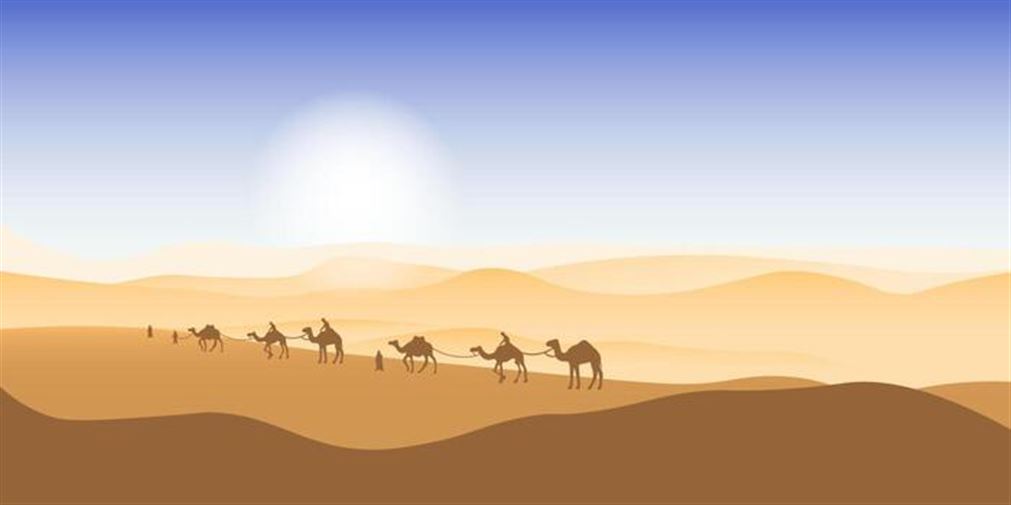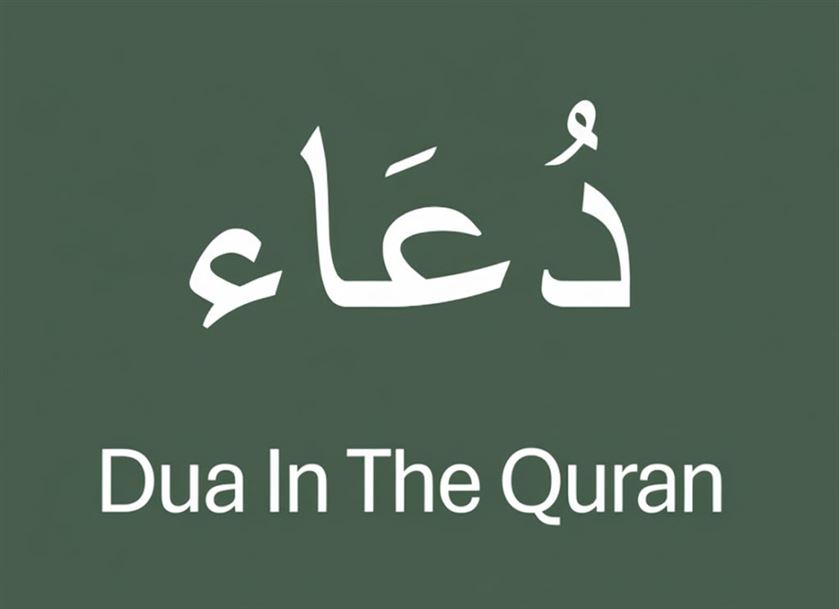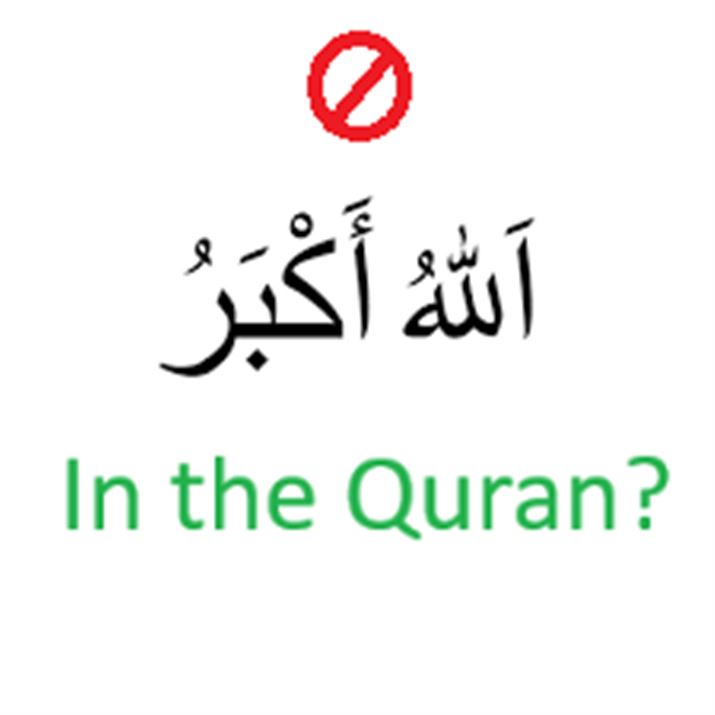How to understand the concept of Hajj from the Quran.
Synopsis
Hajj and Umra are very deep, profound and necessary concepts which, taken together helps the believer understand the importance of being sincere, establishing purity and based on that foundation, build a community.
Ibrahim brings his family to a land, virtually in the middle of nowhere, with no vegetation, settles them and asks Allah to provide for them.
Surah Ibrahim (14:37)
Our Lord, I have settled from my children in a valley of no vegetation, close to Your sanctified House, so that, Our Lord, they may establish Salāh. So, make hearts of people yearn towards them, and provide them with fruits, so that they may be grateful.
Next, we come to Surah AlBaqarah (2:124-126). We will also explore Surah Hajj, In Sha Allah. Together, these verses describe the steps Ibrahim and Ismael took under the guidance of Allah when they established a center for sincere people (those who walk about, seclude and are humbly accepting – “rukkai sujood”). Once the center is built and the foundations established, they call upon Allah to accept this from them. There are several back and forth interactions described. Allah makes Ibrahim a role model for mankind and tells us to take from his station, our station. His station is “imama” (leader) and our station is “musalla” (following closely).
Then, if we go to Surah Hajj 22:27, we see that Allah tells Ibrahim to announce hajj (set out from their homes upon a journey) to come to Ibrahim on foot and on every camel turned lean, passing through every distant hilly pathways. Allegories are being described such as lean camels indicating long journey. Hilly pathways indicate overcoming obstacles and difficult journey. Don't worry, we'll look at this verse a bit closer a little later.
Once they come to this center, they will witness benefits (22:28) of this place Ibrahim and his son have built. Once they arrive, they can walk about experiencing the clarity and firm resolve of this community, sharing their goodwill with the locals by sacrificing from the provisions from the cattle that Allah has provided them, eating from it and distributing it to the needy and the destitute. If they are able to, they're invited to “umra” (stay and settle). Umra, in the Arabic language means to build. Imarah, for example, is a building.
This leads back to Surah Baqarah (2:126) where Ibrahim calls upon Allah to make it a city of peace. There is no doubt that in this description, Allah has shown the importance of building a community. Not doing so will result in a fragmented community with poor foundations and no imama and no musalla.
Hajj is NOT an annual event to be done in the same place. Once Ibrahim has successfully created a community with the help of Allah, we are to emulate his acts and create communities where we live, not everyone go to the community that’s already been built thousands of years ago.
تِلْكَ أُمَّةٌ قَدْ خَلَتْ لَهَا مَا كَسَبَتْ وَلَكُم مَّا كَسَبْتُمْ وَلَا تُسْـَٔلُونَ عَمَّا كَانُوا۟ يَعْمَلُونَ
That is a community which has passed away; it has what it earned, and you have what you earned; and you will not be questioned about what they did. (2:134)
Example: A man plants seeds, tends to the garden and crops, harvests the produce, cleans, chops and cooks the food. Then he eats and feeds others. Allah says “Take him as your example”. The followers take the part about eating his food and change the rest to rituals like shaking the hands symbolizing the planting of seeds, waving the hands about for watering the plants, doing some dance for cleaning, cutting and cooking the food and have everyone participate in this ritual symbolizing the distribution.
Main Point
There are several verses in the Quran where Allah leaves blanks for the sincere at heart to fill in. For example:
AlBaqarah (2:124)
When his Lord put Ibrāhīm to a test with certain Words, and he fulfilled them, He said, “I am going to make you an Imām for the people.” He said, “And from among my progeny?” He replied, “My promise does not extend to the unjust.”
— T. Usmani
Allah says that he tested Ibrahim with His words and that Ibrahim passed those tests. Then God says to him “I’m making you a role model to mankind”. You’d expect Ibrahim to have an emotional reaction to this. However, he asks “What about my offspring?” Again, you’d expect Allah to answer either with an affirmative or a negative. However, Allah says that His covenant does not extend to the wrongdoers. We can take multiple meanings from this.
1. Allah is saying Ibrahim’s offspring are wrongdoers
2. Allah is saying that Ibrahim’s request is denied
3. Allah says Ibrahim’s request is accepted with the exception of the wrongdoers from among his offspring
People of rational thought and sincerity, would most likely go with option 3, because we do know that the children of Ibrahim are noted as righteous in other parts of the Quran.
Then Allah made the house a frequented place for men and a place of peace. He says to take from the maqam (station) of Ibrahim a “musalla”. According to Lane’s Lexicon, in the Arabic language, “musalli” is a person who follows closely the “sabiq”[1] (lead) and “musalla” is following closely attributed to a station.
Tawba/Bara (9:100)
As for the first and foremost of the Emigrants (Muhājirīn) and the Supporters (AnSār) and those who followed them in goodness, Allah is pleased with them and they are pleased with Allah, and He has prepared for them gardens beneath which rivers flow, where they will live forever. That is the supreme achievement.
Verse 75:5 describes the word "Amama" as "what is ahead".
What is the station of Ibrahim that must be followed closely? In the previous verse (2:124), the station is mention as “imama” – a role model for mankind. The role model should be closely emulated. If he passed the tests Allah put him through, built a house purified for the people, announced hajj – as in to set out to him, etc., then we, as his musalleen should do likewise, not go to the house he supposedly built, 3,000 years later.
Allah then asked Ismail and Ibrahim to purify His house for those who walk about it (tawaf – please see example 24:58), those who seclude themselves in it and those who humbly accept (rukkai sujood). We understand sajda to mean humility and ruku (bowing) to mean acceptance. Allah did not describe this with physical movements or body parts other than the chin[2] regarding prostration and described marks on the faces – both allegories.
AlBaqarah (2:125)
When We made the House a frequented place for men, and a place of peace! Take from the Station of Ibrāhīm (role model to mankind) a station of following closely. We gave the (following directive) to Ibrāhīm and Ismā‘īl (Ishmael): “Purify My House for those who walk about and those who stay in I‘tikāf (seclusion), and those who prostrate in bowing (humbly accepting).
The verse after says that Ibrahim asked Allah to make this a city of peace. Allah just got done making this a house of peace, how did it become a city which Ibrahim is requesting that Allah make it peaceful or secure? There is something that’s transpired between the two verses. What happened? Surah AlHajj fills in the blanks.
Al Baqarah (2:126)
(Recall) when Ibrāhīm said, “My Lord, make this a city of peace, and provide its people with fruits - those of them who believe in Allah and the Last Day.” He (Allah) said, “As for the one who disbelieves, I shall let him enjoy a little, then I shall drag him to the punishment of the Fire. How evil an end it is!
— T. Usmani
Allah commands Ibrahim to announce hajj (set out on a journey) so people will come from far away in different ways in order to witness the benefits AlHajj (22:27-28). This word “benefit” is important because it distinguishes hajj from an act which has no perceivable benefits. Hajj is setting out on a journey and when Allah commands Ibrahim to purify the house after He made it a place to be frequented and a place of peace/security and to announce for people to set out to this place. The entire concept of hajj is for the purpose of building a community, which has tangible benefits, as opposed to walking in circles around a cube, running between 2 hills, standing at the foot of a mountain or stoning 3 pillars with 49 rocks you counted out the night before, etc. – all because you believe in stories that ascribe some significance to these landmarks. This ritualistic practice is no different from pagan rituals which are built exactly the same way. The Quran does not ascribe any significance to what the hadith narratives have painted. Safa and Marwa means clear, without blemish, white, pure, etc. Umra means to populate, thrive, activate, build up, etc.
Surah AlHajj (22:27)
and announce among people about Hajj, so that they should come to you on foot, and on every camel turned lean, traveling through every distant hilly pathway,
AlHajj 22:28 “So that they witness benefits…”
so that they witness benefits for them, and recite Allah’s name in specified days, over the provision He gave them from the cattle. “So, eat thereof and feed the distressed, the poor”.
The verse regarding Hajj and Umra – setting out on a journey and to populate a place.
To better understand this subject, a broader context might be helpful.
Terminologies
Hajj
To set out on a journey. There are verses which use the derivative of the word to mean “argument/debate”. However, those are derivatives and most likely have a different context.
Safa
The word Safa - Basic Root Meaning (ص ف و)
purity, clarity, cleanness, smoothness or being free of blemish, that which is clear, polished, or pure in essence.
From this root come related words like:
صَفْو (ṣafw): purity, clearness, choice part, best portion.
صَفِيّ (ṣafiyy): chosen, pure, intimate friend.
صَفَاء (ṣafā’): purity, serenity, clearness.
Lexical Meaning of الصفا (As a Noun)
الصَّفَا literally means: a smooth, hard, solid stone or rock with a clear, even surface. It conveys the sense of hardness + clarity, i.e., a bare rock that is smooth and shining — unlike a rough, uneven stone. In extended meaning, it can also imply purity and firmness.
Marwa
The word Marwa means - Basic Root Meaning (م ر و)
The root م ر و carries several related meanings depending on context, but all connect around hardness, firmness, and brightness. Core ideas include: a type of hard stone (flint or quartz), whiteness and shining, firmness, sharpness, or strength, by extension, moral courage or noble character (because of hardness and resilience).
Lexical Meaning of المروة (as a noun)
المَرْوَة literally refers to: a small, hard, white stone — flint — that produces fire when struck So linguistically it carries senses of hardness, brilliance, sharpness, and purity.
Umra
To populate, make thrive, make active, to build up
Tawwaaf
The word tawaf refers to walking about. Why then do people think that it means circumambulating the cube (kabba) transfixed with the “black stone” which they believe to have religious significance? Often times people tend to be misguided by the Shaytan to adopt ways which were not clarified by God. For example, as soon as Musa took the banu Israel from the grasp of Firaun and he goes for a few days to meet with His Lord, they immediately turn to idol worship by building the golden calf. The Christians didn’t take long to alter the message of Jesus into the message about Jesus and elevate his station to shirk with Allah. The Quran says that Shaytan swears to lay in ambush for us on every sirat al mustaqim (straight path). The messengers of Allah brought the straight path but people misguided by the Shaytan diverted it to a crooked path.
We, therefore, must be in constant vigil to look out for these crooked paths and steer clear of them. The 7 times circumambulation is an ancient Hindu practice, as is the phallus symbol which they consider to be their “black stone”. No mention is made of it in the Quran.
In Surah Nur (24:58) the word tawaf is used to clearly indicate moving about each other during times that are not designated as “private” in the Quran. This word can not mean that Allah is saying people should be circling each other 7 times in a counter-clockwise direction.
Surah An Nur(24:58)
O you who believe, the slaves owned by you, and those of you who have not reached puberty, must seek your permission (to see you) at three times: before the prayer of Fajr, and when you take off your clothes at noon, and after the prayer of ‘Ishā’. These are three times of privacy for you. There is no harm, neither to you nor to them, after these (three times). They are your frequent visitors, as some of you are (frequent visitors) of the others. This is how Allah explains the verses to you. Allah is All-Knowing, All-Wise.
— Taqi Usmani
Believers, your slaves and any who have not yet reached puberty should ask your permission to come in at three times of day: before the dawn prayer; when you lay your garments aside in the midday heat; and after the evening prayer. These are your three times for privacy; at other times, there is no blame on you or them if you move around each other freely. In this way God makes messages clear: God is all knowing, all wise.
— M.A.S. Abdel Haleem
O ye who believe! let those whom your right hands possess, and the (children) among you who have not come of age ask your permission (before they come to your presence), on three occasions: before morning prayer; the while ye doff your clothes for the noonday heat; and after the late-night prayer: these are your three times of undress: outside those times it is not wrong for you or for them to move about attending to each other: Thus does Allah make clear the Signs to you: for Allah is full of knowledge and wisdom.
— A. Yusuf Ali
Ihram
This section establishes a state of self-imposed restrictions or “ritual pureness” that lines up with the mission of what one is about to undertake. It includes not shaving the head until your gift reaches its destination, no obscenities, no sin, no quarrel, no hunting animals to extinction (if you feel you had to then expiation will be due); instead, buy from the local livestock raised for such a purpose and alternatively, fish from the sea.
It does NOT mean “wear a white robe without any stitching with one arm and shoulder bare” like a Buddhist monk.
Side Note
1. Surah AlBaqarah (2:196) — Core instruction about entering iḥrām
وَأَتِمُّوا۟ ٱلْحَجَّ وَٱلْعُمْرَةَ لِلَّهِ ۚ فَإِنْ أُحْصِرْتُمْ فَمَا ٱسْتَيْسَرَ مِنَ ٱلْهَدْىِ ۖ وَلَا تَحْلِقُوا۟ رُءُوسَكُمْ حَتَّىٰ يَبْلُغَ ٱلْهَدْىُ مَحِلَّهُۥ ۚ فَمَن كَانَ مِنكُم مَّرِيضًا أَوْ بِهِۦٓ أَذًۭى مِّن رَّأْسِهِۦ فَفِدْيَةٌۭ مِّن صِيَامٍ أَوْ صَدَقَةٍ أَوْ نُسُكٍۢ ۚ فَإِذَآ أَمِنتُمْ فَمَن تَمَتَّعَ بِٱلْعُمْرَةِ إِلَى ٱلْحَجِّ فَمَا ٱسْتَيْسَرَ مِنَ ٱلْهَدْىِ ۚ فَمَن لَّمْ يَجِدْ فَصِيَامُ ثَلَـٰثَةِ أَيَّامٍۢ فِى ٱلْحَجِّ وَسَبْعَةٍ إِذَا رَجَعْتُمْ ۗ تِلْكَ عَشَرَةٌۭ كَامِلَةٌۭ ۗ ذَٰلِكَ لِمَن لَّمْ يَكُنْ أَهْلُهُۥ حَاضِرِى ٱلْمَسْجِدِ ٱلْحَرَامِ ۚ وَٱتَّقُوا۟ ٱللَّهَ وَٱعْلَمُوٓا۟ أَنَّ ٱللَّهَ شَدِيدُ ٱلْعِقَابِ ١٩٦
Accomplish the Hajj and the ‘Umrah for Allah, but if you are restricted, then give whatever offering/gift is available, and do not shave your heads until the offering reaches its place. But if anyone of you is ill, or has some trouble with his scalp, then there is a ransom through fasting or alms giving. And when you are safe, then, whoever avails the advantage of the ‘Umrah along with the Hajj shall make an offering of whatever is available. However, any one who finds none shall fast for three days during Hajj, and for seven days when you return; thus they are ten in all. This is for him whose family folk are not present in Al-Masjid-ul-Harām. Have taqwa of Allah and be aware that Allah is severe in punishment.
Shaving the Head
Complete the hajj (setting out) and umra (settling) for the sake of Allah. However, if you are restricted (from what?) then offering of whatever gift/offering is available.
If the restriction (اُحۡصِرۡتُمۡ) is about umra (settling), then you still have done hajj so you give the gift/offering and don’t shave your head until your offering reaches the needy and distressed in light of 22:28. If the restriction applies to both setting out and settling, then the shaving of the head won’t hold practial value.
What is Hadiya?
The gift or offering that is referred to in this verse can mean any gift. However, it can also be argued in light of 22:28 that it is a sacrifice of an animal. The counter argument could be that what was valued and practical at that time was animals and with changing times or circumstances, it could mean other offerings. Allah knows best.
2. Surah AlBaqarah (2:197) — Entry into the state
“Well known months” most likely refers to the months in which travel is most convenient or comfortable. Please refer to the sacred months section in this document. In the desert heat, it would be impractical to travel during the summer months, en masse, long distances.
“Whoever enters the obligation (farada) of ḥajj in them” — this refers to initiating the state (iḥrām), and the verse lists some behaviors prohibited while in that state.
ٱلْحَجُّ أَشْهُرٌۭ مَّعْلُومَـٰتٌۭ ۚ فَمَن فَرَضَ فِيهِنَّ ٱلْحَجَّ فَلَا رَفَثَ وَلَا فُسُوقَ وَلَا جِدَالَ فِى ٱلْحَجِّ ۗ وَمَا تَفْعَلُوا۟ مِنْ خَيْرٍۢ يَعْلَمْهُ ٱللَّهُ ۗ وَتَزَوَّدُوا۟ فَإِنَّ خَيْرَ ٱلزَّادِ ٱلتَّقْوَىٰ ۚ وَٱتَّقُونِ يَـٰٓأُو۟لِى ٱلْأَلْبَـٰبِ ١٩٧
The Hajj is in the months that are well-known. So whoever farada (enters the obligation of) Hajj in them (the months), there should be no obscenity, no sin, no quarrel in the Hajj. Whatever good you do, Allah will know it. Take provisions along, the best provision is taqwa, and have taqwa (2:177) of Me, O men of understanding!
3. Surah AlMaida (5:1) — Prohibition during iḥrām
Hunting is prohibited.
“While you are ḥurum” = in the state of iḥrām, hunting is prohibited.
يَـٰٓأَيُّهَا ٱلَّذِينَ ءَامَنُوٓا۟ أَوْفُوا۟ بِٱلْعُقُودِ ۚ أُحِلَّتْ لَكُم بَهِيمَةُ ٱلْأَنْعَـٰمِ إِلَّا مَا يُتْلَىٰ عَلَيْكُمْ غَيْرَ مُحِلِّى ٱلصَّيْدِ وَأَنتُمْ حُرُمٌ ۗ إِنَّ ٱللَّهَ يَحْكُمُ مَا يُرِيدُ ١
O you who believe, fulfill the contracts. The animals from the cattle have been made lawful for you, except that which shall be recited to you, not permitted for you is hunting while you are in hurum (IHrām – state of purity). Surely, Allah ordains what He wills.
4. Surah AlMaidah (5:95) — Expiation for hunting while in iḥrām
يَـٰٓأَيُّهَا ٱلَّذِينَ ءَامَنُوا۟ لَا تَقْتُلُوا۟ ٱلصَّيْدَ وَأَنتُمْ حُرُمٌۭ ۚ وَمَن قَتَلَهُۥ مِنكُم مُّتَعَمِّدًۭا فَجَزَآءٌۭ مِّثْلُ مَا قَتَلَ مِنَ ٱلنَّعَمِ يَحْكُمُ بِهِۦ ذَوَا عَدْلٍۢ مِّنكُمْ هَدْيًۢا بَـٰلِغَ ٱلْكَعْبَةِ أَوْ كَفَّـٰرَةٌۭ طَعَامُ مَسَـٰكِينَ أَوْ عَدْلُ ذَٰلِكَ صِيَامًۭا لِّيَذُوقَ وَبَالَ أَمْرِهِۦ ۗ عَفَا ٱللَّهُ عَمَّا سَلَفَ ۚ وَمَنْ عَادَ فَيَنتَقِمُ ٱللَّهُ مِنْهُ ۗ وَٱللَّهُ عَزِيزٌۭ ذُو ٱنتِقَامٍ ٩٥
O you who believe, do not kill game when you are in hurum (IHrām – self-imposed restriction). If someone from among you kills it deliberately, then compensation (will be required) from cattle equal to what one has killed, according to the judgement of two just men from among you, as an offering due to reach the Ka’bah, or an expiation, that is, to feed the poor, or its equal in fasts, so that he may taste the punishment of what he did. Allah has forgiven what has passed, but whoever does it again, Allah shall subject him to retribution. Allah is Mighty, Lord of Retribution.
This verse details the compensation if someone violates iḥrām by hunting. If a large group is setting out to a place then the potential of hunting the local animals to extinction is very real. These orders line up with that understanding. There may be some need to do so and the fact that there is only expiation and not a punishment indicates that this would be a fault which may be due to legitimate extenuating circumstances.
What is Ka’bah?
Root: ك ع ب Core meaning of the root: elevation, prominence, something that is raised or stands out.
Meaning of الكعبة in Qur’anic usage: The prominent, elevated structure — the well-known House designated as a focal point (2:125, 5:95, etc.).
Nothing in the root itself implies a cube; rather, the meaning centers on something elevated, prominent, or protruding, from which the later architectural understanding developed.
Manasik (Rites)
Allah clearly explains what “rites” are in the verse 22:34. According to this verse, it is the mentioning of the name of Allah over the cattle/livestock Allah has provided them.
“For Every Community We Appointed a Rite…”
22:34
“For every community We appointed a rite (mansak) so that they may mention the name of Allah over the livestock He provided them.”
https://quran.com/22?startingVerse=34
Show us our rites
2:128
“Our Lord, make us both devoted to You, and from our offspring a community devoted to You, and show us our rites (manāsikanā), and accept our turning (repentance) — indeed, You are the Accepter of repentance, the Merciful.”
https://quran.com/2?startingVerse=128
When You Have Completed Your Rites
2:200
“When you have completed your rites (manāsikakum), then remember Allah as you remember your forefathers, or with even greater remembrance.”
https://quran.com/2?startingVerse=200
Holy Months
Hajj is More than 1 Month
Ashhurul Hurum (Sacred months) – Known months (Not singular, not dual, but plural, indicating more than 2 or at least 3)
AlBaqarah (2:197)
Hajj is the months that are well-known. So whoever undertakes Hajj in them, there should be no obscenity, no sin, no quarrel in the Hajj. Whatever good you do, Allah will know it. Take provisions along, for the merit of (having) provision is to abstain (from begging), and fear Me, O men of understanding!
12 Months Decreed in a Year 4 Months are Sacred and Consecutive
These verses indicate a pause in fighting for 4 months. If the pause itself was paused that would extend the waiting months to more the 4 months.
Surah At Tawba (9:2)
So, move in the land freely for four months, and be aware that you can never frustrate Allah, and that Allah is going to disgrace the disbelievers.
Surah At Tawba (9:5)
So, when the sacred months expire, kill the Mushriks wherever you find them, and catch them and besiege them and sit in ambush for them everywhere. Then, if they repent and establish Salāh and pay Zakāh, leave their way. Surely, Allah is most Forgiving, Very-Merciful.
Surah At Tawba (9:36)
Surely, the number of months according to Allah is twelve (as written) in the Book of Allah on the day He created the heavens and the Earth, of which there are Four Sacred Months. That is the right faith. So, do not wrong yourself therein. And fight the Mushriks all together, as they fight you all together, and be sure that Allah is with the God-fearing.
The count of year is not only lunar
If the year were calculated only by the lunar cycle, the sun would not need to be mentioned.
Yunus (10:5)
He is the One who has made the sun a glow, and the moon a light, and determined for it stages, so that you may learn the number of the years, and the calculation. Allah has not created all this but for a rightful purpose. He elaborates the signs for a people who understand.
[1] Example: AtTawbah/AlBara (9:100)
[2]Al-Isrā’ (17:107)
“Say: Believe in it or do not believe. Indeed, those who were given knowledge before it — when it is recited to them, they fall down upon their chins in prostration.”
Al-Isrā’ (17:109)
“And they say, ‘Glory be to our Lord! Truly the promise of our Lord is fulfilled.’ And they fall upon their chins weeping, and it increases them in humility.” (Qur’an 17:108–109)





